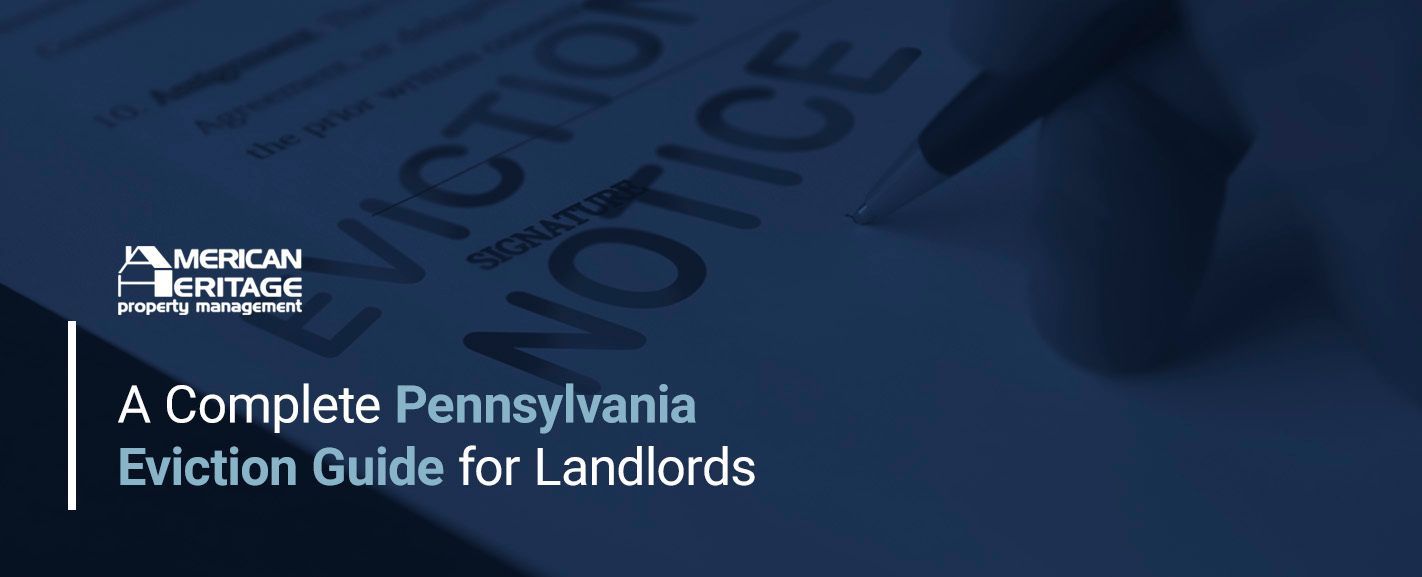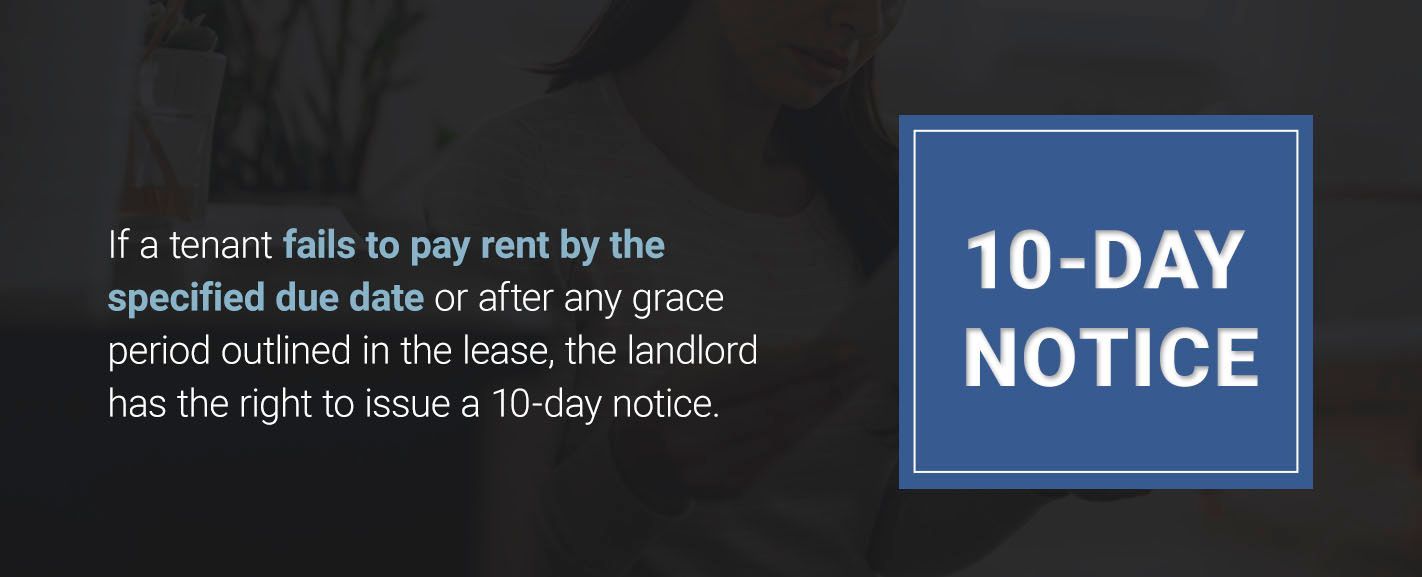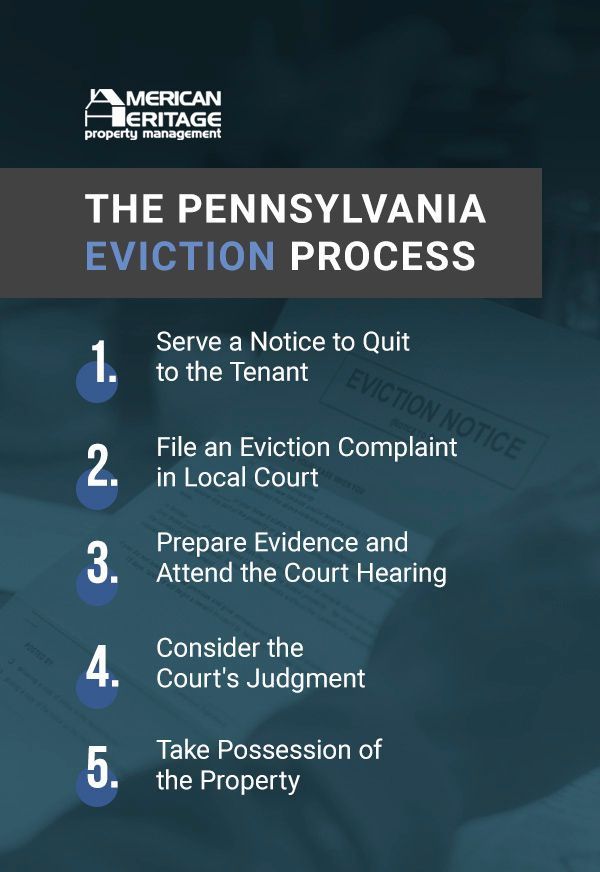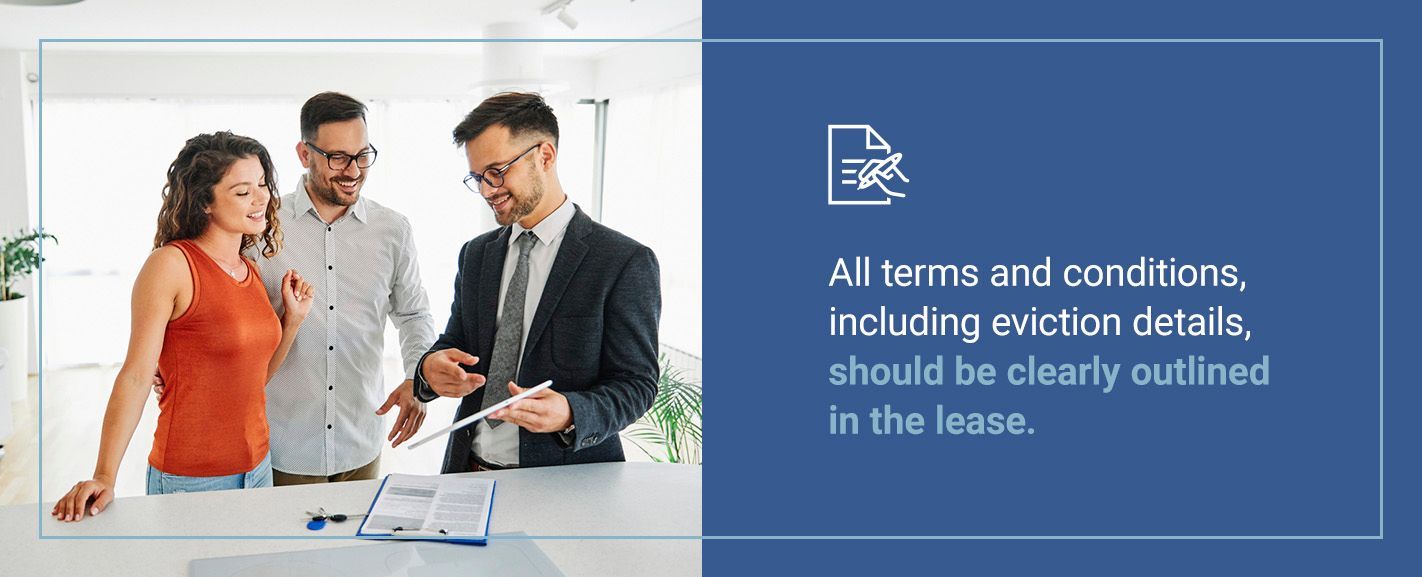Pennsylvania Eviction Laws: Guide For Landlords

A Complete Pennsylvania Eviction Guide for Landlords
For most landlords, evicting a tenant is a last resort. The eviction process is complex and costly, and both parties often feel stressed and frustrated as it plays out. However, eviction is your right as a landlord in PA, and you may find that it's the only path forward when you encounter tenants who fail to uphold their end of the lease agreement.
Whether you're dealing with a tenant who has caused significant property damage or hasn't paid their rent on time, it's important to understand how to pursue a legal eviction process. Knowing your rights and the relevant laws will help you comply with the correct procedures so you can protect yourself and your property. Learn about PA eviction laws, grounds for eviction, tenant rights, mistakes to avoid and more in our complete guide.
Overview of Pennsylvania Eviction Laws
The eviction process in PA varies by county. As you consider eviction, be sure to review your location's specific eviction laws so you can take the appropriate legal steps. However, evictions across counties generally involve the following steps:
- Send a written PA eviction notice to the tenant.
- File a complaint in court if the tenant doesn't comply with the written notice.
- Provide supporting documentation to create a court case.
- Go through the court hearing.
- Follow the court-issued judgment.
These steps can be more nuanced in some instances, and the eviction process can vary in length depending on the situation.
What Are the Grounds for Eviction in Pennsylvania?
To file an eviction notice legally, a landlord must have a valid reason according to PA eviction laws. If you have grounds for eviction, you can serve the tenant with a notice to quit, which is a legal written statement that says the tenant must either correct the breach of the lease or vacate within a certain duration. This notice is always required to begin an eviction.
These are the four main grounds for eviction in the state:
1. Violation of the Lease Agreement
When a tenant signs a lease agreement, they're signing a legal contract and agreeing to adhere to the rules and responsibilities outlined in that contract. If the tenant breaches the conditions of the lease, the landlord has legal grounds to begin eviction. Some common examples of lease violations include:
- Excessive noise
- Late rent payments
- Smoking indoors
- Property damage
- Unpermitted pets
- Unauthorized occupants
- Unsanitary conditions
How many lease violations can occur before eviction? Whether you choose to pursue eviction for a lease violation depends on the violation's severity. Most often, less-severe violations, like a noise issue or an unpermitted pet, can be addressed by communicating with the tenant. If the violations persist uncorrected, or the violations are a result of illegal activity or property damage, eviction may be considered.
Note that the eviction process for a lease agreement violation varies depending on the lease's duration. If the tenant is renting for over one year, the eviction notice period is 30 days. For a lease term of one year or less, also called an “indeterminate” time, the eviction notice period is 15 days.
2. Nonpayment of Rent
Unless otherwise stated in the lease, rent is considered late starting the day after it's due. If a tenant fails to pay rent by the specified due date or after any grace period outlined in the lease, the landlord has the right to issue a 10-day notice. If the tenant fails to pay the overdue rent within 10 days, they must vacate the property.

3. Illegal Activity
If you find that a tenant is committing illegal activity on the rental property, you can file an eviction notice after 10 days with no opportunity for the tenant to correct the violation. An example is drug activity violating the state's Controlled Substance, Drug, Device and Cosmetic Act. Other illegal activity may include violent behavior that puts other tenants and neighbors at risk.
4. Expiration of Lease Without Renewal
Once a tenant's lease expires, they must vacate the rental premises. If you and the tenant agree to extend or renew the lease, the tenant can legally remain in the unit. Otherwise, any tenant refusing to move out after the lease term is up is considered a “holdover tenant” and can be evicted.
The Pennsylvania Eviction Process
If you're considering eviction based on valid grounds and want to know how to evict someone in PA, the legal eviction process occurs as follows:

1. Serve a Notice to Quit to the Tenant
The first step is to serve your tenant a notice to quit. This written document must clearly state the purpose of the notice, the reason for eviction, the required solution, and the deadline for complying or vacating the property. Either serve the notice in person or send it to the tenant via certified mail with a return receipt requested.
Depending on the situation, your notice to quit can include one of the following timelines:
- 10-day notice: The tenant hasn't paid rent on time or is engaging in illegal activity on the property.
- 15-day notice: The tenant has an indeterminate lease period and has violated the lease.
- 30-day notice: The tenant has a lease period of one year or longer and has violated the lease.
If the tenant complies with the notice and takes the proper corrective action within the allotted period, the eviction process ends here.
2. File an Eviction Complaint in Local Court
When serving a notice to quit is unsuccessful, it's your right as a landlord to file an eviction complaint in local court. Begin by compiling all the necessary details, such as a copy of the lease, the basis for eviction, evidence you gave proper notice, and additional supporting documentation.
Then, file an official eviction complaint with your local district court. This step may require paying court filing fees. Once filed, the court summons the tenant, and a court hearing is scheduled after the tenant has been served.
3. Prepare Evidence and Attend the Court Hearing
Before the court hearing, you and the tenant will each prepare your case and can choose to hire legal representation. During the court hearing, you both present your individual cases, offering evidence to support your positions. As the landlord, you must show you have valid grounds for eviction. The tenant may raise their own defense and challenge your claims.
4. Consider the Court's Judgment
Based on the evidence and cases presented in the court hearing, the judge makes a ruling. If the judge decides in your favor as the landlord, the tenant is ordered to vacate the property. If the judge decides in the tenant's favor, your eviction action is dismissed, and the tenant can legally remain in their rental unit. In either situation, the nonfavored party has the option to appeal the judgment within 10 days.
5. Take Possession of the Property
If the court decides in the landlord's favor, the tenant must vacate the rental property within the timeline outlined by the court judgment. If the tenant doesn't vacate the premises, the landlord can request a writ of possession. This legal document authorizes the tenant's removal from the rental property, enforced by the local sheriff's office or a court officer.
Once the writ is issued, the local sheriff's office or a court officer will serve it to the tenant, who then has 11 days to move out. If the tenant is being evicted due to nonpayment of rent, they have until the writ is executed to pay their overdue rent and stop the eviction. If the tenant neither moves out nor pays their overdue rent, sheriff's deputies or court officers forcibly remove them and their belongings from the property.
What Is the Eviction Process in Pennsylvania With No Lease?
Some landlords don't have written leases with their tenants. According to tenant rights in PA for no lease situations, the law generally assumes that you and your tenant have an oral month-to-month lease agreement. In that case, you can still pursue the legal process above with a 15- or 30-day notice, but you also have the right to end the lease at the end of any month for any reason.
Tenant Rights in Pennsylvania
As a landlord, it's essential to understand your tenants' rights under PA laws. These laws exist to protect tenants from unfair and unlawful treatment while renting. With both your and your tenants' rights in mind, you can move forward with a fair, legal resolution.
Remember that specific tenant rights vary across counties, so always consider your location's tenant laws before taking action. In general, tenants in PA have the following rights:
- Safe, habitable living environment: It's the landlord's responsibility to maintain a safe, habitable rental property, which is called the tenant's right to a “decent home.” If a tenant believes they're not being provided that kind of rental property, they may pursue legal action.
- Legal eviction process: All tenants have the right to a lawful eviction process. If a landlord attempts to initiate eviction outside the legal process, also called a “self-help eviction,” the tenant can take legal action. Additionally, tenants have the right to contest evictions in court.
- Protection against discrimination and retaliation: Under the federal Fair Housing Act, landlords can't evict tenants because of protected characteristics, such as race, gender or disability. PA doesn't have a specific state law for retaliatory evictions, but it is illegal for landlords to retaliate against tenants, such as by shutting off their utilities, for exercising their tenant rights or joining a tenants' group.
Special Considerations
The eviction process isn't always straightforward, and you may be dealing with a special circumstance. For example, in certain states, landlords may need to follow particular seasonal restrictions. These restrictions don't exist in PA — you can evict a tenant any time of year through the legal eviction process.
Another special consideration to note is squatting. Under PA's Act 88 of 2024, which amends the Landlord and Tenant Act of 1951, any individual who occupies a property without ever having been a tenant is considered a squatter and doesn't have the same legal protections as a tenant. If you have a squatter, you can remove them without following traditional eviction notice requirements, using the Act's expedited legal pathway to reclaim your property.
Tips for Avoiding Evictions
Few landlords want to choose eviction as the first step in resolving an issue with a tenant. The good news is that you can take many steps to avoid evictions in the first place. Consider some of the ideas below:
- Maintain open communication with your tenants: One of the best ways to resolve issues is by talking them out with your tenants. Make it easy for them to reach you, whether by phone, email or in-person interactions. Be as responsive and courteous as possible — good communication can make a world of difference in finding a solution.
- Screen tenants thoroughly: Part of avoiding issues altogether is selecting the right tenants to live in your rentals. The tenant screening and selection process should be thorough and extensive to ensure you're selecting tenants who are a good fit for your properties. This process greatly reduces the likelihood of choosing tenants who will cause eviction-worthy problems.
- Use a clear, descriptive lease: Nothing is more critical than a well-written, physical lease. All terms and conditions, including eviction details, should be clearly outlined in the lease. It may be beneficial to work with an attorney to draft a lease that protects you and considers the tenant's legal rights.
- Conduct regular unit inspections: A great way to stay on top of property maintenance is to schedule periodic unit inspections throughout the year. Be sure to give the tenant proper notice of the inspection. If you find damage or other issues, you can work with the tenant to correct things before it turns into a potential eviction.
- Hire a rental property manager: If you own several tenant-occupied units or simply want to hire someone to facilitate tenant relationships and property concerns, consider hiring a property manager. This individual or team can handle numerous tenant-related tasks, including assisting with the eviction process, so you can devote more time and energy to other things.

Pennsylvania Eviction FAQs
Do you have further questions about PA landlord and tenant laws or how to evict someone in PA? Explore a few FAQs and their answers below:
Can a Landlord Evict a Tenant During Winter?
Yes, a landlord in PA can evict a tenant during winter and any other time of year. There are no seasonal eviction restrictions in PA.
How Long Does the Eviction Process Take in Pennsylvania?
The eviction process in PA can take anywhere from a few weeks to months. Depending on the specific circumstances, you can expect the timeline to unfold as follows:
- 10-30 days for the notice period
- One to two weeks to file the eviction in court
- Two to four weeks for the court hearing and judgment
- One to two weeks for the eviction and writ of possession
What Happens If a Tenant Refuses to Leave After an Eviction?
If your tenant refuses to leave the rental property within the timeline outlined by the court's judgment, you have the right as a landlord to request a writ of possession. Then, a specific law officer will serve the tenant, who has 11 days to move out from that point. If they still refuse to leave, law officers will return and remove them forcibly.
Choose AHPM for Property Management Services
For many landlords and rental property owners, managing tenants can be time-consuming and difficult. Working with an experienced property management service can help. At American Heritage Property Management, we provide over 40 years of expertise in full-service property management.
Let us help you take the stress out of ownership by handling 24/7 maintenance, rent collection assistance, tenant screening and selection, and lease preparation and collection. If an eviction is necessary, we can assist with that process, too. As a result, you can take a step back and enjoy your investment without worrying about operations.
AHPM works with properties in and around Central Pennsylvania and the Baltimore Metro area. Contact us today to learn more.





